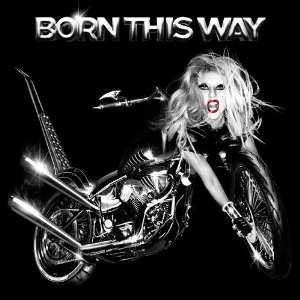It’s tempting anytime an artist gets as big as Lady Gaga to fall into one of the two diametrically opposed groups. As with every Biggest Thing Going since the Beatles – or perhaps earlier; did Mozart have haters? – Gaga has half the world convinced she’s the reincarnation of Jesus (or Judas) in the form of a pop star and the other half convinced that she’s a talentless hack who disguises her musical shortcomings with garish costumes and a pretentious public image. It should go without saying that neither of these things are entirely correct.
The truth is less flashy, but ultimately more significant: Lady Gaga has made weirdness marketable again. Her gimmicks aren’t wholly new – Björk wore stranger dresses earlier, Alice Cooper introduced blood and monsters into his stage show before Stefani Joanne Angelina Germanotta was even born, and plenty of pop musicians have more aggressively pushed more controversial political agendas than her gay rights campaign – but they have everyone from the most entrenched pop culture warrior to the person who only hears music when they go to the club talking, and they’re talking about inherently strange things. The last time pop culture enormity and artistic eccentricity converged so completely, people were gathering round the office copier to discuss the dancing dwarf on Twin Peaks. In that way, Lady Gaga matters.
Her music is somewhat less off-the-wall, even if it is rapidly improving. Where The Fame followed the standard mega-pop formula of a few key singles padded by filler and The Fame Monster saw Gaga buying into some of her own mythology and producing several cuts that thought they were cleverer than they actually were, her third proper release, Born This Way, sees the singer channeling her 80s influences more profoundly than ever before while further exploring her own musical identity. The red flags that went up for so many people when Madonna-worshiping lead single ‘Born This Way’ and the cheesy album artwork (a poster bargain bin in Arena, circa 1987) were released weren’t misplaced, but it’s Gaga’s embrace of these motifs that make the album what it is, for better or worse.
More than any of Gaga’s previous works, Born This Way tends to sound like the sum of her influences. There are very clear nods to the aforementioned Madonna, Bruce Springsteen (ace closing track ‘The Edge of Glory’ features a saxophone solo from the E Street Band’s Clarence Clemons), Blondie, Bob Seger, Purple Rain-era Prince, the Cabaret soundtrack, and Judas Priest. The Judas Priest references are especially interesting – the cover art, while hideous, could have been the cover of any Priest album between 1979 and 1990; the opening riff (yes, riff) to ‘Electric Chapel’ sounds like an outtake from Killing Machine; longtime AC/DC producer Mutt Lange lends bite to the umlaut-studded power ballad ‘Yoü and I’. There’s even something resembling a death metal vocal bit in ‘Bloody Mary’, and one of the poppiest cuts is entitled ‘Heavy Metal Lover’. It’s not that the metal themes dominate the album – they’re often rather subdued, in fact – but it’s a microcosmic example of just how entrenched Gaga’s influences are.
Which isn’t to say that she’s compromised her own identity. Every song on the album bears the indelible mark of Gaga. A bit of her silly self-aggrandizing ("Gaga" needn’t ever be a lyric, really) comes through as a part of that, unfortunately, as well as the presence of a few filler tracks (‘Government Hooker’ and ‘Scheiße’ are as painful as their names suggest), but on the whole, the fusion of what has become recognizable as The Gaga Sound with an impressive slate of revered influences makes Born This Way the quintessential Lady Gaga studio experience to date. For the first time in her career, the dresses made of meat and audience-baffling awards show performances can take a backseat to her songs. Gaga’s status as a pop oddity may have been much of what kept her relevant through her first two albums’ song cycles, but her songwriting has almost completely caught up.


